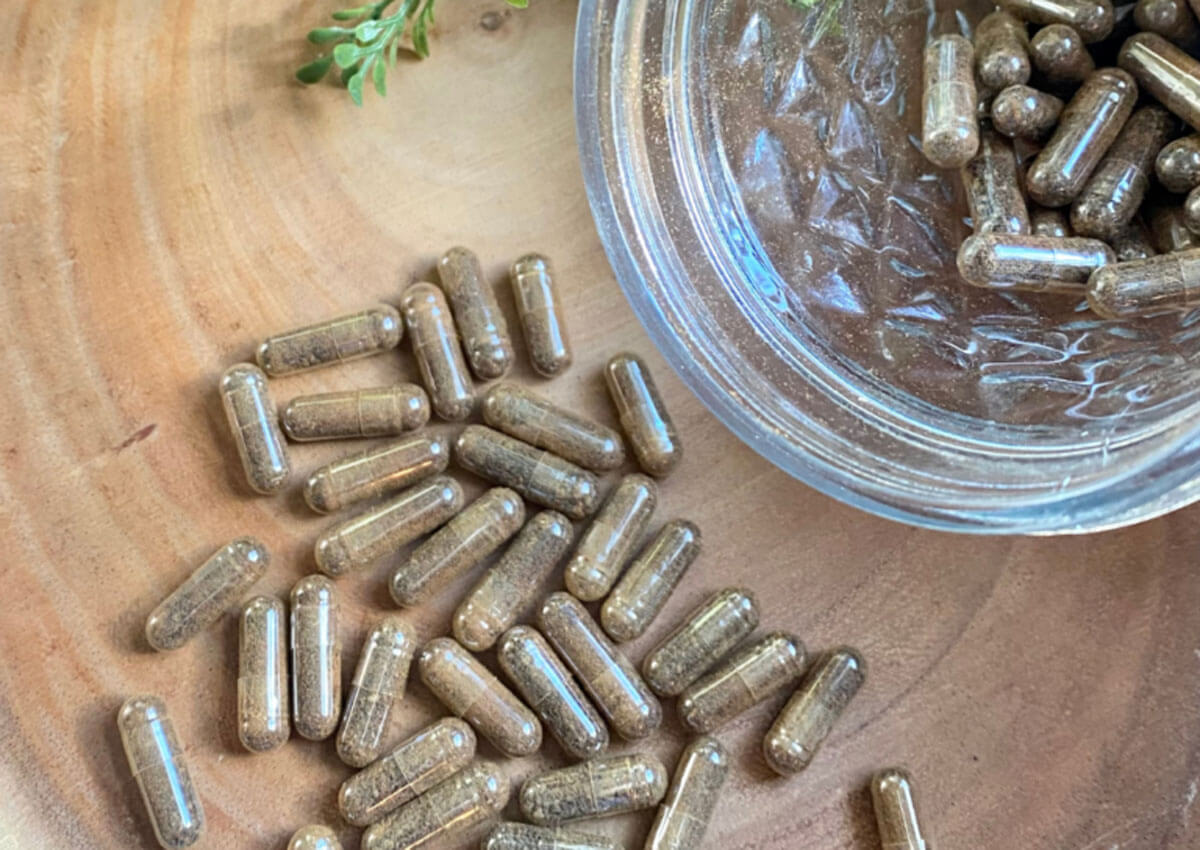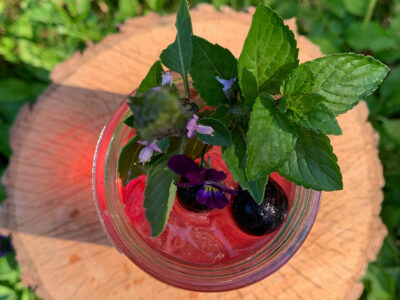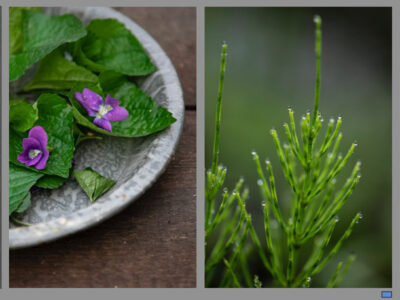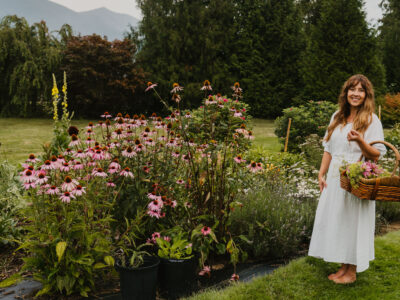How can we consume liver and mask the taste to reap the amazing health and nutritional beef liver benefits? Read on to learn more…
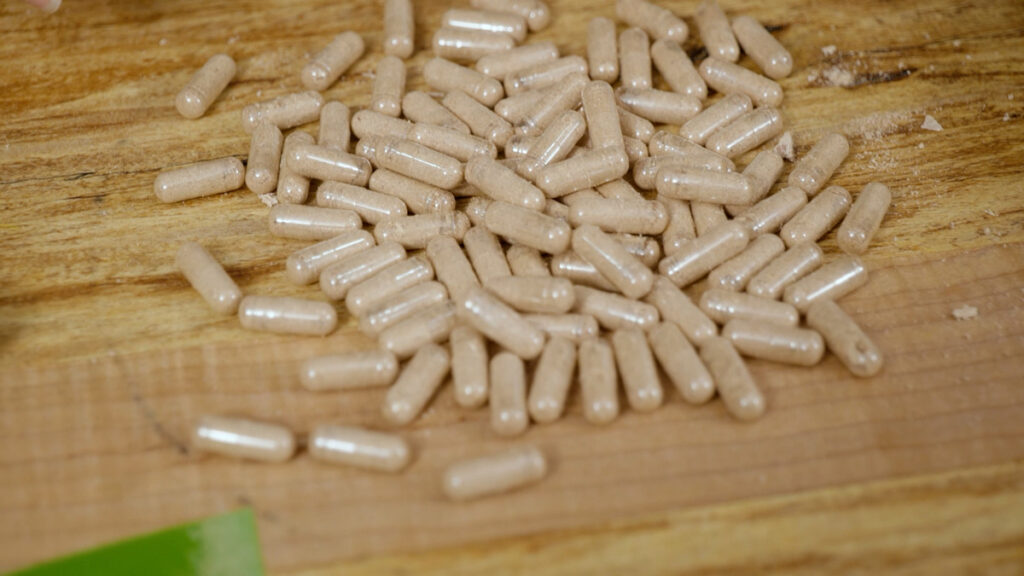
If you’re reading this post, you’ve likely experienced some kind of health crisis at one point that’s led you to research traditional and whole foods to help improve your health.
Natural Remedies Made Simple

Start your home apothecary with confidence—even if you’re brand new. Learn how to choose the right herbs for your body using the simple principles of herbal energetics.
Discover how warming, cooling, drying, and moistening herbs affect your body—so you can stop guessing and start making remedies that actually work.
You’re in the right place! In today’s episode of the Pioneering Today Podcast (episode #389) I’m joined by Stephanie from The Rancher’s Homestead.
It’s both Stephanie’s and my desire to share the stories of our health journey. We both had to learn the hard way, and we hope by sharing, you can learn how to avoid some of our mistakes.
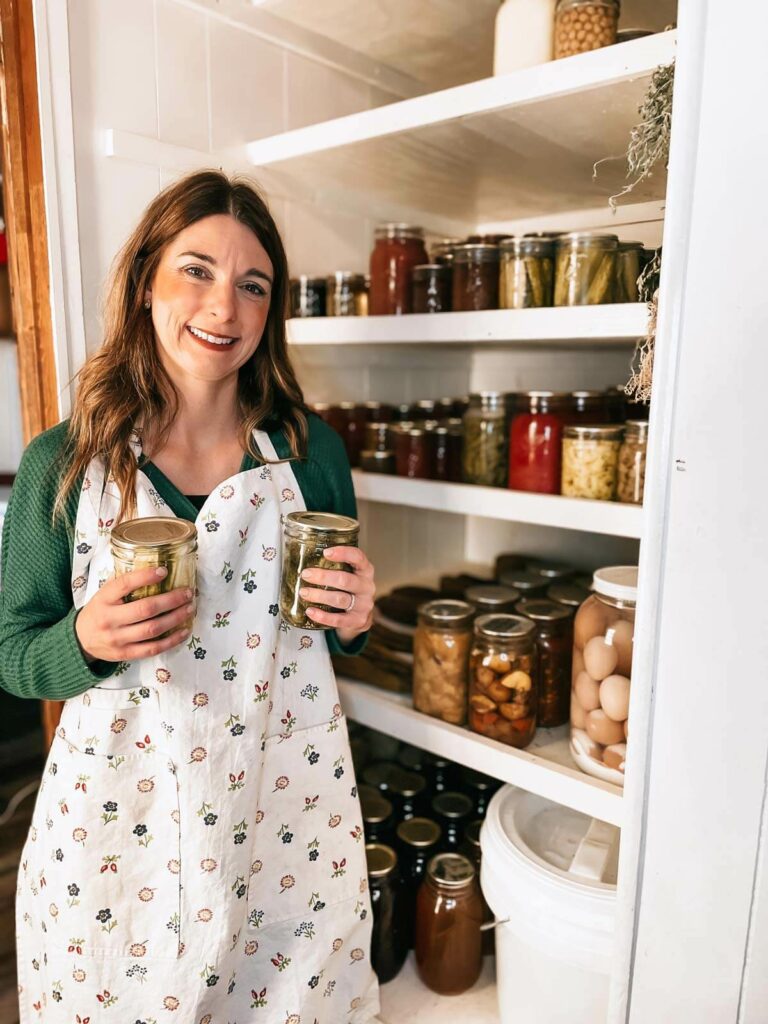
Table of Contents[Hide][Show]
About Stephanie
Stephanie is a simple-living mom of three girls, a Missouri ranch wife, and a gluten-free, from-scratch cooking enthusiast. She loves to inspire and teach others how to cook completely from scratch, gluten-free if needed, using healthy, wholesome ingredients.
Stephanie is passionate about using what she can grow, raise, and preserve on her own land to provide healthy, sustainable foods and products for her family despite our broken food system.
Stephanie was diagnosed with celiac disease at a young age, so she knew the signs of gluten intolerance. After seeing her daughter break out with an extreme case of eczema that wouldn’t go away (including after treatments with steroid creams), she knew it was time to take matters into her own hands.
After researching for countless hours, she came across an article that talked about healing eczema with food and diet. It wasn’t only a matter of eliminating gluten. Because the damage had already been done, they eliminated all processed foods and only consumed whole foods. (Source)
After about 8-9 months, her daughter’s eczema was completely healed and they’ve been able to reintroduce (in moderation) everything except gluten.
This deep dive into foods taught Stephanie even more about overall nutrition. Which eventually led to her learning about beef liver benefits.
Falsehoods About Liver
Many people think you shouldn’t eat liver because it’s meant to detox or filter out toxins from the cow. Therefore, they think it’s filled with these toxins.
However, the liver is just that, a filter. It excretes the waste well, and when it’s a healthy liver from a healthy cow, it won’t contain toxins.
This is why it’s important to source your beef liver well. If you’ve raised the animal, or you know the animal was raised well, these are all great sources for liver. Eating liver sourced from animals raised in CAFOs (Concentrated Animal Feeding Operations) or the butcher at the supermarket probably isn’t the best source.
Why Does Liver Taste Metallic?
Many people think liver has a very strong metallic taste, therefore turning their noses up at it. I’m one of these people! Stephanie shares that liver tastes metallic because it’s so high in iron.
However, I also know how healthy liver is for us, so I’m glad Stephanie is sharing new ways to eat it when we just can’t stomach the strong taste.
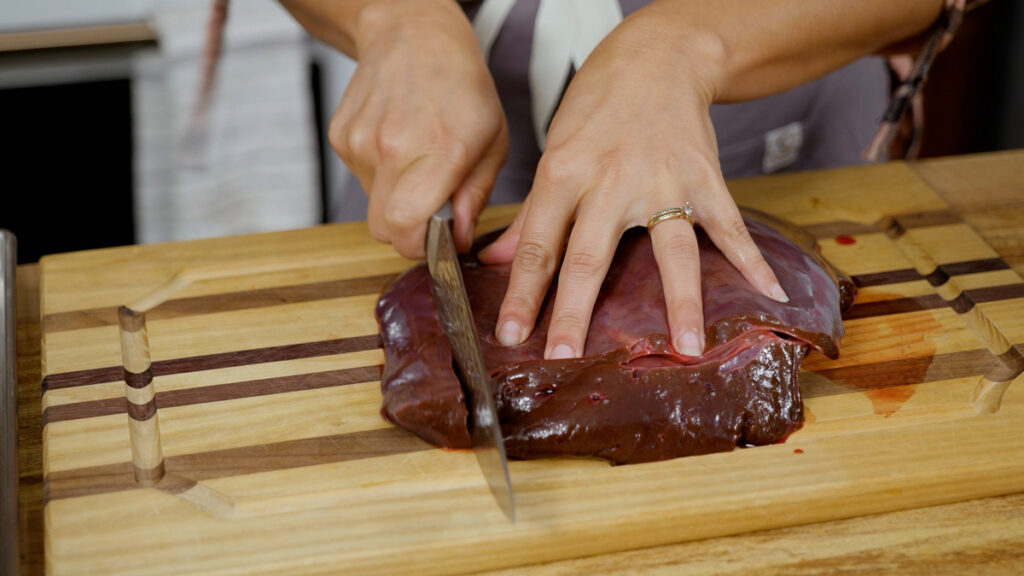
Beef Liver Benefits
A couple of years ago, Stephanie was dealing with adult-onset acne. She’d already tried cleaning up her diet and was still experiencing outbreaks. So she started working with a dietician, and the dietician recommended adding liver to her already healthy diet.
Stephanie had been diligent with her diet and her family’s diet for years, consuming healthy whole foods. But the dietician specifically recommended looking at her liver health. If her liver wasn’t properly detoxing, those toxins would come out in other ways (aka acne).
Is Beef Liver Good for You?
Yes! Beef liver has so many great nutritional benefits as well as the benefits to our own liver.
Beef Liver Nutrition
Beef liver is extremely high in many vitamins and minerals. In fact, with one serving of beef liver you can get 100% of your daily requirements of Vitamins A, B2 (Riboflavin), B9 (Folate), B12 (Cobalamin), Choline, Copper, and Iron. (Source)
Because it’s so packed with nutrition, it’s literally a superfood. Though there’s no one magic food that will help alleviate all our ailments, beef liver is certainly something we should be considering as part of a healthy diet.
That’s a ton of nutrition packed into a 3.5 oz serving size of beef liver. Sadly, many people aren’t eating some of the most nutrient-dense parts of the animal.
It’s important to note that I am not a certified medical practitioner. This post is not intended to diagnose or treat but is for informational purposes only. Please contact your healthcare professional before introducing new herbal and natural remedies into your wellness routine.
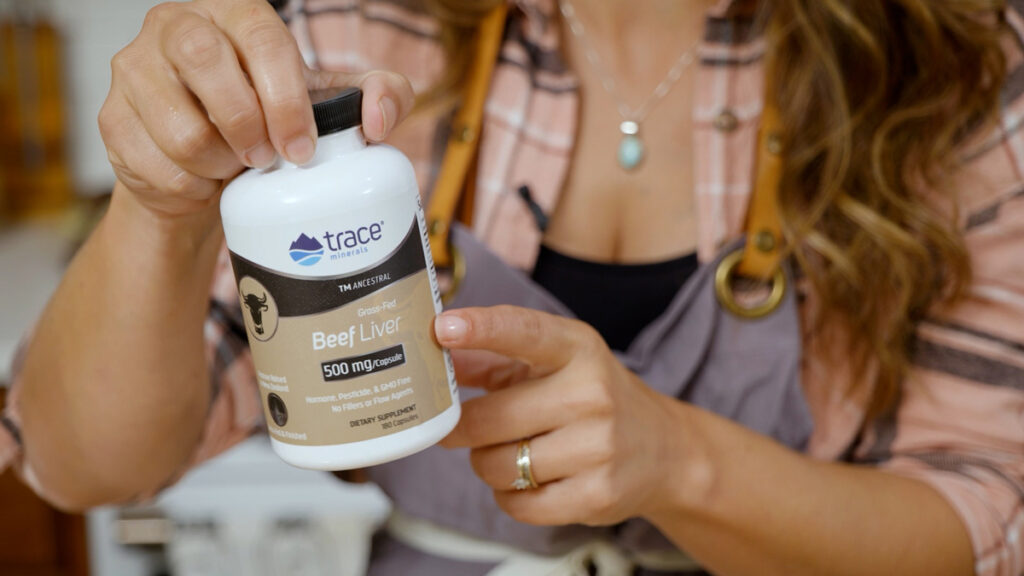
Beef Liver Supplements
Because some of us can’t stomach the flavor of beef liver, and most of us wouldn’t look forward to cooking and eating beef liver upwards of three times per week, there are many options for purchasing beef liver supplements (or making your own!).
The process is simply slicing up the beef liver, dehydrating it, and pulsing it in a blender until it’s a fine powder.
Stephanie mentions how she uses this powder to sprinkle into meals like ground beef, smoothies, milk kefir, etc.
You can also encapsulate liver powder into liver pills. This is a great way to consume beef liver without actually having to taste the liver.
Where to Get Beef Liver
If you’re not interested in encapsulating your own liver, you can purchase liver supplements through Azure Standard.
Azure Standard is actually the sponsor of this podcast, and they’re generously offering my listeners 10% off your first order of $50 or more when you use coupon code “Melissa10” at checkout! So if you’re in the market for beef liver supplements, now is a great time to get your supply through Azure Standard.
If you’d like to give the beef liver a try and don’t have access to any near you, ButcherBox has the option to purchase raw liver. Fry it up with some onions, turn it into pate, or dehydrate it and make your own liver pills.
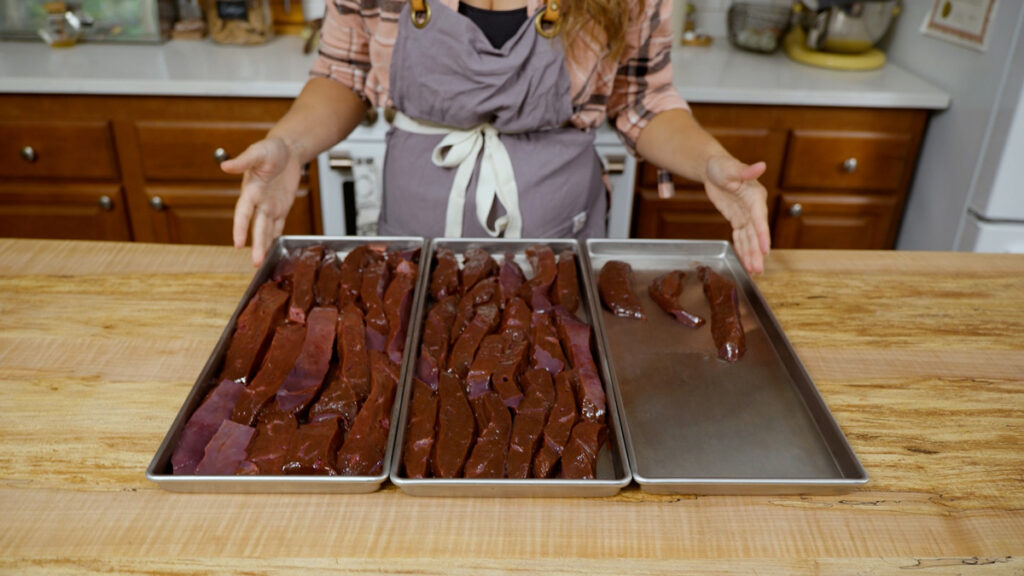
How to Dehydrate Beef Liver
You can check out this post for how to dehydrate or freeze-dry liver to make it shelf-stable. Make sure your liver is truly dried. The key is it should “snap” when you break a piece in two.
Store it in an airtight container stored out of direct sunlight and away from heat for up to three months for the best taste.
Freeze-dried beef liver is shelf stable for years, unlike dehydrated, which means you’ll have beef liver benefits at your fingertips whenever you need it. Here’s more information on the differences between freeze-drying vs. dehydrating and must-know freeze-drying tips.
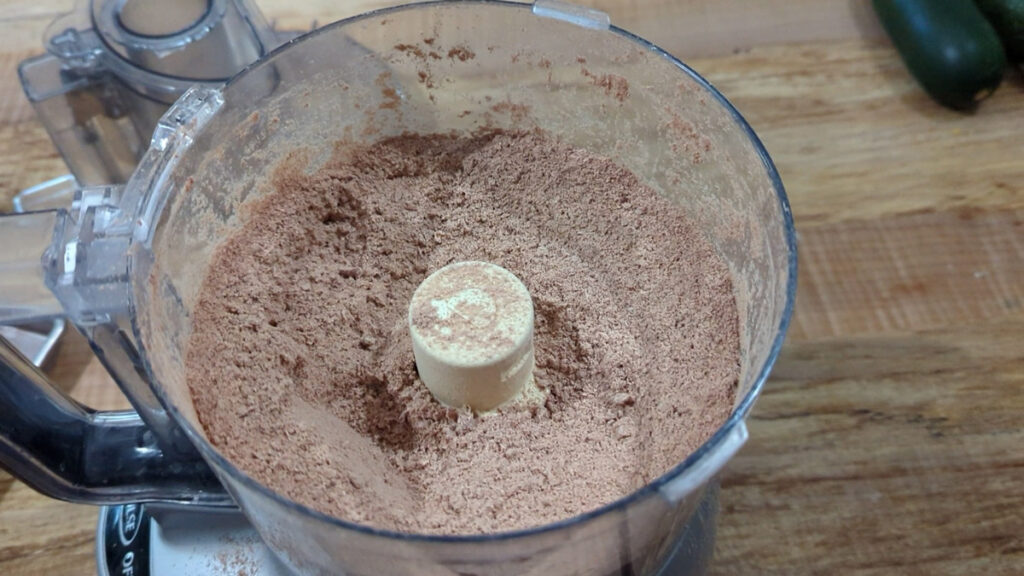
How to Make Beef Liver Powder
After you’ve dehydrated or freeze-dried your beef liver, grind it up into a fine powder using a blender or food processor.
Place into a glass Mason jar and seal tightly. Store out of direct sunlight and heat, or turn it into homemade beef liver supplements.
Alternatively, you can use a Tablespoon of the powder in your smoothies or sprinkle it into soups and sauces!
Freeze-dried foods will last up to 25 years and retain the highest level of nutrients.
But I did finally break down and get a freeze-dryer from Harvest Right, and I’ll tell you what, I’ve truly enjoyed freeze-drying so many more foods than I ever thought I would! Harvest Right is having a huge sale right now (May 2023), where you can save up to $500!
Looking for more superfoods? Check out Stinging Nettle Benefits (Foraging & Preserving)
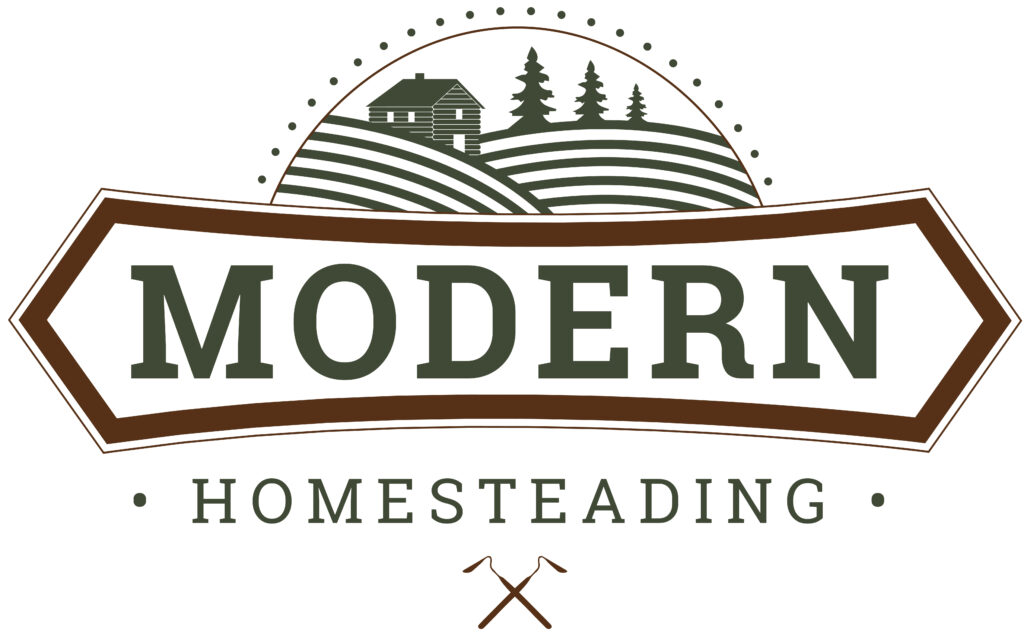
Modern Homesteading Conference
It’s amazing once you start down the road of traditional living and whole-food eating. The doors seem to swing wide open to many other aspects of life.
Many of the homesteaders I’ve met, got into this homesteading lifestyle first by changing their family’s diet. From there, they turned to growing their fruits and vegetables, then raising their meat animals.
If you’d like to learn more and connect with other people in the same stage of life, consider joining us at the first annual Modern Homesteading Conference. This year’s two-day event will be held in beautiful North Idaho from June 30-July 1, 2023.
If you’d like to learn how to create healthy, vibrant soil for the health of your animals, as well as the nutrients found in the foods you grow in your garden (which all eventually end up benefiting you as you consume these foods), then head on over to the website and purchase your tickets to the Modern Homesteading Conference today.
Verse of the Week: Ecclesiastes 2:24-26
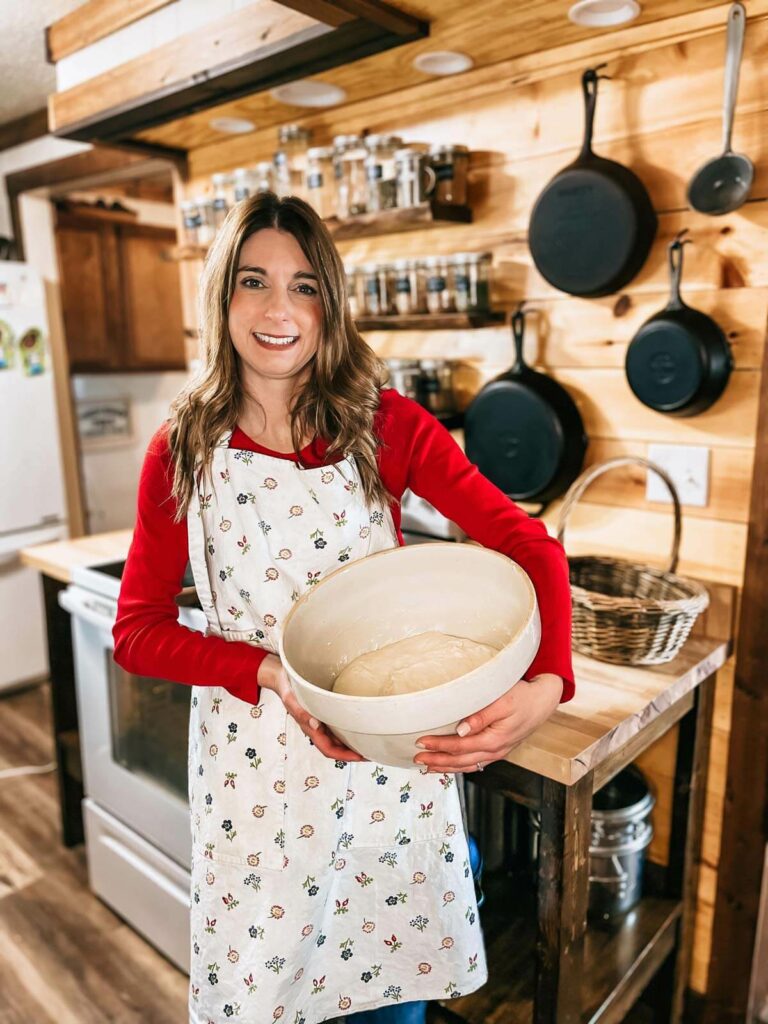
Where to Find Stephanie
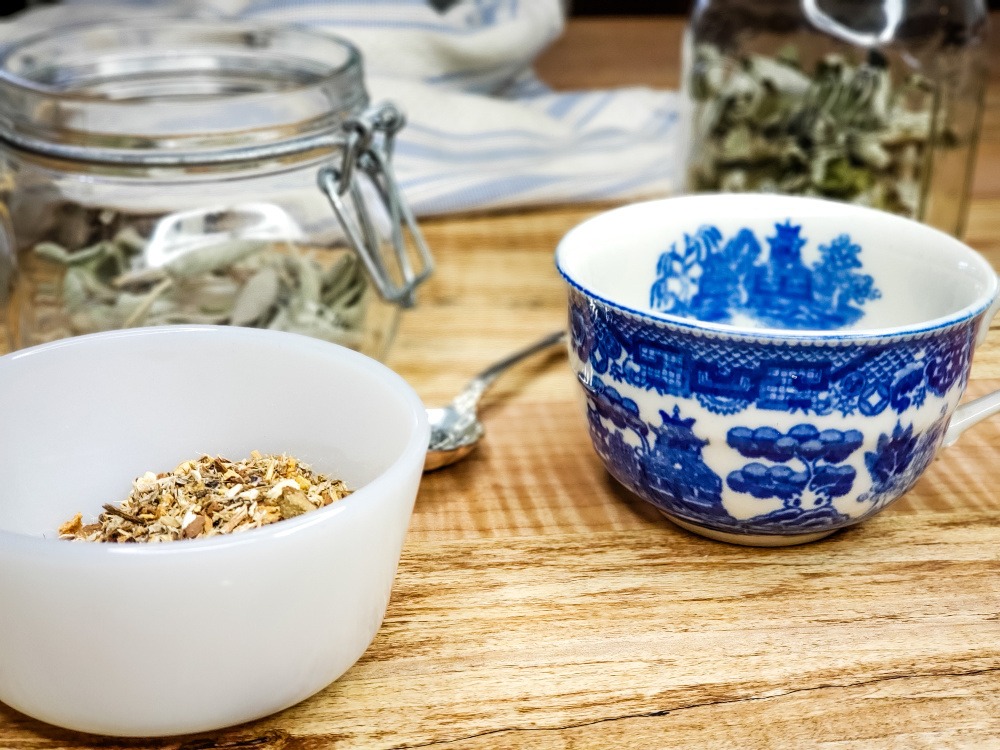
More Posts You May Enjoy
- How to Boost Your Immune System
- Decoding mRNA in Meat
- Best Method for Drying Herbs (For Stronger Medicinal Properties)
- Where to Find Morel Mushrooms
- Best Medicinal Herbs to Grow From Seed
- Foraging for Wild Medicinal Herbs
- Herbal Medicinal Tea (How to Make Your Own)
- Echinacea Tincture – How To Make It & Use It
[fusebox_transcript]
